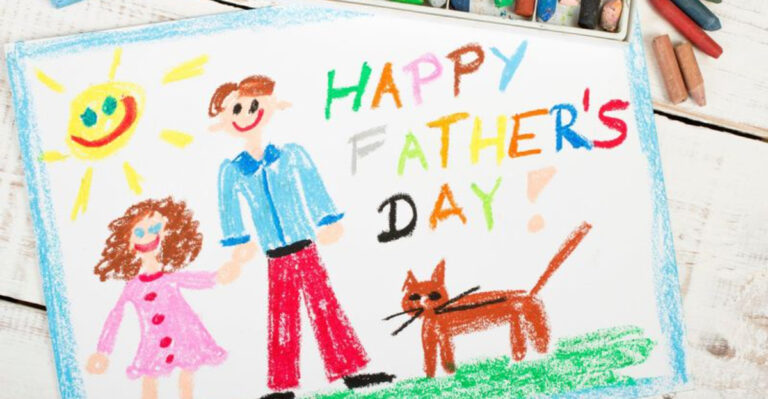42 Signs You’re the Sane One in Your Family (Despite What They Claim)
Sometimes, you might feel like the black sheep in your family, even when you’re doing your best to keep things smooth. It’s easy to think you’re the issue, especially if you’re constantly being told so.
But hey, maybe it’s time to take a step back and see that you’re not the problem. I made a list of 42 signs that show you’re actually doing just fine!
This isn’t about pointing fingers; it’s about recognizing your own truth amidst the chaos. So, let’s get started on this journey of self-discovery and find out if it’s really you or if there’s more to the story.
1. You’re always the peacemaker

Picture this: you’re the one who jumps in when the family argument gets heated, trying to calm everyone down. It’s not about taking sides but about ensuring there’s peace. You’ve probably found yourself saying, “Let’s all take a deep breath,” more times than you can count. That’s a sign you care more about harmony than drama.
Being the peacemaker means you prioritize understanding over winning. You’ve become the unofficial referee, reminding everyone that we’re all on the same team. It’s not because you enjoy conflict, but because you believe in resolution.
It’s not easy, but someone has to do it. You keep the lines of communication open, proving you’re more about solutions than squabbles. Your role isn’t about control; it’s about keeping the love alive in the midst of chaos.
2. You respect boundaries

Boundaries are your best friend. You know when to step back and give space, even when it’s hard. You understand that respecting others’ space is crucial for healthy relationships. It’s not about being distant; it’s about showing maturity and empathy.
Your knack for honoring boundaries shows that you value trust and respect. You’re not the problem when you’re the one acknowledging that everyone has their own space and time to process things. Your patience and understanding speak volumes about your character.
3. You listen more than you speak

Being a great listener is your superpower. You give others the chance to express themselves fully before jumping in with your thoughts. It’s about making others feel heard and valued.
Your ability to listen shows that you care deeply about what others have to say. It’s not about being silent; it’s about being present. You’re not the problem when you’re the one who chooses to understand rather than being understood.
4. You avoid gossip

Gossip has never been your thing. You prefer facts over fiction and refuse to engage in rumors. It’s a sign of integrity and self-respect.
When you steer clear of gossip, it’s because you prioritize truth and respect over idle chatter. You’re not the problem when you’re committed to keeping things real and respectful. Let others talk; you’re too busy keeping things honest and kind.
5. You apologize when wrong

Admitting mistakes isn’t easy, but you do it with sincerity. For you, apologies aren’t just about saying the words—they’re a promise to learn and grow. Owning up to your faults takes courage, especially in situations where emotions run high, but you manage to do it with grace.
By acknowledging when you’re wrong, you set an example for those around you. It’s a reminder that growth stems from accountability, and relationships flourish when both parties are willing to work through their flaws.
Apologies aren’t a weakness—they’re a strength that shows you’re not the problem, but someone who values progress over perfection.
6. You offer help without expectations

When you offer help, it’s never conditional. You don’t lend a hand hoping for favors in return—you do it because you genuinely care.
This kind of selflessness makes you someone others can rely on, especially in times of need. Whether it’s assisting someone with a challenging task or just being emotionally supportive, your generosity shines through.
Helping without expecting anything back shows that your motives come from a place of love and compassion. It reflects the kind of person who uplifts others, not someone adding to the tension. Your actions demonstrate that true kindness comes without hidden strings.
7. You communicate openly

You believe that honest and transparent communication is the foundation of any strong relationship. Speaking your mind and listening actively are habits you practice, ensuring that everyone involved feels heard and respected.
Instead of avoiding tough conversations, you approach them with an open heart, prioritizing understanding over conflict. Open communication isn’t about always agreeing with others—it’s about creating a safe space for dialogue.
By fostering this environment, you build stronger connections and pave the way for trust to grow. Your ability to encourage openness proves you’re not the problem but a valuable contributor to harmonious relationships.
8. You practice empathy

Empathy is one of your greatest strengths. You take the time to understand others’ feelings and meet them with compassion.
Rather than rushing to give advice or solutions, you prioritize being present for them emotionally. This makes you someone people can turn to when they feel vulnerable or misunderstood.
Practicing empathy means stepping into someone else’s shoes and seeing the world from their perspective. It’s about showing that their experiences matter. Your compassion helps to bridge emotional gaps, proving that you’re not the source of problems but the person who brings comfort and connection.
9. You set healthy boundaries

Healthy boundaries are essential, and you’re not afraid to establish them. You recognize that maintaining respect in relationships requires clear communication about what’s acceptable and what isn’t. For you, boundaries aren’t about creating distance but ensuring mutual respect and emotional safety.
By setting limits, you teach others how to treat you while also respecting their own needs. This balance leads to healthier, more fulfilling interactions. Your ability to uphold boundaries shows that you’re not the problem but someone who prioritizes well-being for yourself and those around you.
10. You remain calm under pressure

In chaotic situations, you’re the one who keeps a cool head. While others may react with panic, you focus on finding solutions and maintaining stability. Your composure helps diffuse tension, making you the steady presence that people look to when things feel overwhelming.
Staying calm under pressure isn’t just about keeping your emotions in check—it’s about creating an atmosphere where problems can be tackled effectively. Your ability to navigate challenges with grace shows that you’re not adding to the chaos but bringing clarity and order.
11. You encourage others

You believe in the power of encouragement and make it a point to lift others up. Whether it’s celebrating their achievements or supporting them during tough times, you’re their cheerleader, reminding them of their strengths and potential. Your words and actions inspire confidence, motivating those around you to aim higher.
Encouragement isn’t just about compliments—it’s about being genuinely invested in others’ happiness and success. Your supportive nature shows that you’re not the problem; you’re the one helping others see the best in themselves.
12. You are reliable

When you say you’ll do something, you follow through. People know they can depend on you because you take commitments seriously. This reliability builds trust and reassures others that you’re someone who won’t let them down when it matters most.
Being reliable isn’t just about big gestures—it’s about consistency in the small things too. Whether it’s showing up on time or keeping promises, your dependability creates stability in relationships. You’re not the problem; you’re the steady presence that others can count on.
13. You show gratitude

Gratitude is part of your daily life. You take the time to appreciate the people and moments that bring joy, and you’re not shy about expressing your thanks. This positive outlook helps you focus on what truly matters, fostering a sense of contentment and connection.
Showing gratitude doesn’t just make others feel valued—it also strengthens your own sense of fulfillment. By focusing on the good, you create an atmosphere of positivity that uplifts everyone around you. Your appreciation for life and others proves you’re a force for harmony, not discord.
14. You have your own life

You maintain a sense of independence, balancing family responsibilities with your own passions and interests. Pursuing what you love outside of family life helps you bring fresh energy and perspectives to your relationships. It shows that you’re a whole, multi-faceted individual.
Having your own life isn’t about distancing yourself—it’s about ensuring that you’re fulfilled and happy. This balance allows you to show up for your loved ones with authenticity and enthusiasm. You’re not the problem; you’re the person reminding everyone that individuality enhances connections.
15. You forgive easily

Forgiveness comes naturally to you because you understand its importance in maintaining healthy relationships. You let go of grudges, choosing instead to focus on moving forward. For you, forgiveness isn’t about condoning mistakes—it’s about valuing relationships over resentment.
Letting go of past hurts shows strength and wisdom. By forgiving others, you create space for healing and growth, proving that you’re not the problem but someone who prioritizes peace and reconciliation.
16. You stay positive

Positivity is your default setting, even when life throws curveballs. You focus on finding solutions and encouraging others to see the brighter side of things. This optimistic mindset spreads to those around you, making challenging situations feel less daunting.
Your positivity doesn’t mean ignoring problems—it means approaching them with hope and resilience. By focusing on what’s possible rather than what’s wrong, you inspire others to do the same. You’re the sunshine that helps chase away the clouds.
17. You manage your emotions

You have a strong sense of emotional self-awareness. Instead of letting emotions control your reactions, you take the time to process them and respond thoughtfully. This level of emotional intelligence allows you to handle disagreements and stressful situations with calm and care.
Managing your emotions doesn’t mean suppressing them—it means choosing to act with intention rather than impulse. Your ability to stay composed fosters understanding and peace, proving that you’re not the problem but someone who keeps relationships balanced and harmonious.
18. You value quality time

Spending meaningful time with loved ones is a priority for you. Whether it’s planning special activities or simply being present in the moment, you focus on creating connections that go beyond surface-level interactions.
For you, quality time isn’t about grand gestures—it’s about building memories and deepening bonds.
By valuing these moments, you show that relationships are built on shared experiences and intentional effort. Your dedication to making time for others demonstrates that you’re not the issue; you’re the glue that keeps connections strong.
19. You seek to understand

You approach relationships with curiosity and an open mind, striving to understand others’ perspectives even when they differ from your own. Instead of jumping to conclusions, you ask thoughtful questions and take the time to truly listen.
This pursuit of understanding builds trust and bridges gaps in communication. By seeking clarity and valuing different viewpoints, you show that you’re not the problem but someone fostering empathy and mutual respect in your relationships.
20. You maintain privacy

You respect the boundaries and confidentiality of others, understanding that not every detail of life needs to be shared. Keeping someone’s trust by guarding their secrets shows your integrity and commitment to maintaining strong relationships.
Respecting privacy isn’t about hiding things—it’s about creating a safe space for others to be themselves. Your ability to honor what’s entrusted to you proves you’re not the problem but someone who values trust and respect above all.
21. You are patient

Patience is one of your defining traits. You understand that growth, healing, and change take time, and you’re willing to wait and support others through their journeys. Instead of rushing outcomes, you encourage progress at a natural pace, providing reassurance along the way.
Your patience is a source of comfort for those around you. It shows that you’re invested in others’ success and well-being, proving that you’re not the problem but someone who nurtures and uplifts with kindness and understanding.
22. You embrace individuality

You celebrate the unique qualities that make each person special, encouraging self-expression and authenticity. Instead of pushing conformity, you create an environment where everyone feels free to be themselves. Your acceptance reminds others that diversity is something to be cherished.
By embracing individuality, you foster creativity and confidence in those around you. This openness proves you’re not the problem—you’re the person empowering others to shine in their own way.
23. You trust others

Trusting people to do their best and respecting their choices comes naturally to you. You believe in giving others the benefit of the doubt and encouraging them to take responsibility for their actions. This trust fosters confidence and strengthens relationships.
Your belief in others’ abilities and intentions shows that you’re not the problem. You’re the person who nurtures trust and builds connections based on mutual respect and faith in one another.
24. You adapt to changes

When life takes unexpected turns, you go with the flow, finding ways to make the most of any situation. Change doesn’t throw you off balance; instead, you see it as an opportunity to grow and evolve. This flexibility allows you to navigate challenges with grace.
Adapting to change isn’t about giving up—it’s about finding new paths forward. Your resilience and creativity show that you’re not the problem but a problem-solver who keeps things moving, no matter what life throws your way.
25. You keep promises

For you, a promise is more than just words—it’s a commitment. Whether it’s a small favor or a significant obligation, you make sure to follow through. Your reliability reassures others that they can count on you, no matter the circumstances.
By keeping your promises, you build trust and strengthen your relationships. This consistency shows that you’re not the problem but someone who values integrity and responsibility, making you a pillar of dependability in your family.
26. You are consistent

Your consistency provides stability and comfort to those around you. Whether it’s showing up for family events, being there in times of need, or maintaining a steady attitude, your predictable presence brings a sense of security to relationships.
Consistency isn’t about perfection—it’s about being dependable in the ways that matter most. By offering this stability, you prove that you’re not the problem. Instead, you’re the steady foundation that others can rely on.
27. You honor traditions

Family traditions hold a special place in your heart, and you take pride in keeping them alive. Whether it’s celebrating holidays in a specific way or simply following long-standing rituals, you ensure that these moments of connection and history are preserved for future generations.
Honoring traditions is about more than nostalgia—it’s about reinforcing the bonds that bring people together. Your dedication to these shared customs shows that you’re not the problem but a vital link in the chain of family heritage.
28. You Respect Different Opinions

Respecting different opinions within the family is a fundamental aspect of healthy relationships. It involves listening to others’ viewpoints, even when they differ from yours, and appreciating the diversity of thoughts.
By valuing each person’s perspective, you contribute to a culture of openness and acceptance. This respect fosters an environment where family members feel safe to express themselves and engage in meaningful dialogues.
29. You focus on solutions

When challenges arise, you focus on how to move forward instead of dwelling on the past. Your ability to shift the conversation toward solutions brings clarity and positivity, helping everyone involved find common ground and work toward resolution.
Focusing on solutions isn’t about ignoring problems—it’s about tackling them constructively. Your proactive mindset proves that you’re not the problem; you’re the person helping to create paths forward.
30. You celebrate achievements

Big or small, every win deserves recognition, and you make it a point to celebrate the successes of those around you. From milestones to everyday victories, your enthusiasm for others’ accomplishments spreads joy and encouragement.
Celebrating achievements isn’t just about the moment—it’s about showing others that their efforts matter. Your support reinforces bonds and proves that you’re not the problem but the cheerleader who makes every success sweeter.
31. You practice self-care

You understand that taking care of yourself is essential to being your best for others. Whether it’s carving out time for hobbies, rest, or self-reflection, you prioritize your well-being without guilt. This balance allows you to show up fully for those you care about.
Practicing self-care isn’t selfish—it’s a form of self-respect. Your commitment to maintaining your mental and emotional health proves you’re not the problem. You’re the person reminding everyone that a strong foundation starts with taking care of yourself.
32. You are fair

Fairness is at the core of your values. You ensure that everyone gets a fair shot and that justice is upheld in family matters. It’s about equality and respect.
Think about the time you mediated that intense family board game, ensuring everyone played by the rules and enjoyed the fun.
Your commitment to fairness proves you’re not the problem. You’re the one ensuring equality and justice, showing that everyone deserves a fair chance. It’s about balance and integrity, not favoritism.
33. You are open-minded

You approach life with curiosity and a willingness to learn. Being open to new ideas and perspectives allows you to grow and connect with others on a deeper level. This open-mindedness fosters meaningful conversations and helps bridge generational or cultural gaps.
Your ability to consider other viewpoints proves that you’re not the problem. Instead, you’re the one inspiring growth and understanding, making relationships stronger and more resilient.
34. You Take Responsibility for Your Actions

Taking responsibility for your actions is a hallmark of integrity and accountability. When you acknowledge your mistakes and work towards making amends, it shows that you are committed to personal growth and improving relationships.
This behavior encourages others to do the same, fostering a culture of honesty and trust within the family. It demonstrates that you are not deflecting blame but are willing to contribute to resolving issues constructively.
35. You Prioritize Self-Reflection

Self-awareness is a powerful tool. If you regularly engage in self-reflection, it’s a sign you’re not the problem.
Taking the time to analyze your actions shows responsibility and maturity. By understanding your role in family interactions, you can address any issues proactively.
This habit not only fosters personal growth but also enhances family relationships, as it encourages a deeper understanding of others.
36. You Seek Professional Help

Acknowledging the need for therapy or counseling is a strong indicator of your commitment to resolving family issues.
Seeking professional guidance shows that you’re willing to work on problems constructively, rather than ignoring them.
It demonstrates a proactive approach and a willingness to learn new strategies for improving family dynamics.
37. You Respect Different Perspectives

Valuing and respecting different viewpoints is crucial in family discussions.
If you approach conversations with an open mind, willing to consider others’ perspectives, it reflects your non-confrontational stance.
This attitude not only prevents unnecessary conflicts but also promotes a harmonious family environment.
38. You Avoid Unnecessary Drama

Steering clear of unnecessary drama is a trait that reflects maturity and wisdom. You understand that not every provocation requires a response and that maintaining peace often means stepping away from conflict.
This approach helps in de-escalating tense situations and promotes a calmer environment for everyone involved. By not engaging in drama, you set an example of restraint and focus on constructive solutions.
39. You Maintain a Sense of Humor

A good sense of humor can defuse tense situations and lighten the mood during family gatherings.
If you find yourself often using humor to navigate complex interactions, it’s likely you’re not the problem.
Humor can be a bridge in communication, fostering a sense of unity and understanding among family members.
40. You Support Growth and Change

Supporting growth and change within the family is indicative of a progressive mindset. You recognize that everyone evolves and that personal development should be encouraged and celebrated.
By advocating for family members’ aspirations and changes, you nurture a supportive atmosphere. It shows that you are not rigid in your expectations and are open to seeing others thrive in new ventures.
41. You Lead by Example

You believe that actions speak louder than words. Instead of just talking about how things should be, you embody the values you want to see in your family. Whether it’s through kindness, honesty, or resilience, you demonstrate the qualities that foster harmony.
Leading by example isn’t about seeking recognition—it’s about showing consistency in your principles and choices. Your behavior serves as a quiet guide for those around you, proving that you’re not the problem but a positive force in your family dynamic.
42. You Choose Peace Over Winning

Arguments happen, but you’ve learned that winning isn’t always the goal—maintaining peace and understanding is. You know when to step back, choose your battles, and avoid unnecessary conflict.
This doesn’t mean you don’t stand up for yourself; it means you value resolution over proving a point. Your ability to prioritize peace over pride shows emotional intelligence and maturity, proving that you’re not the problem—you’re the one holding things together.







